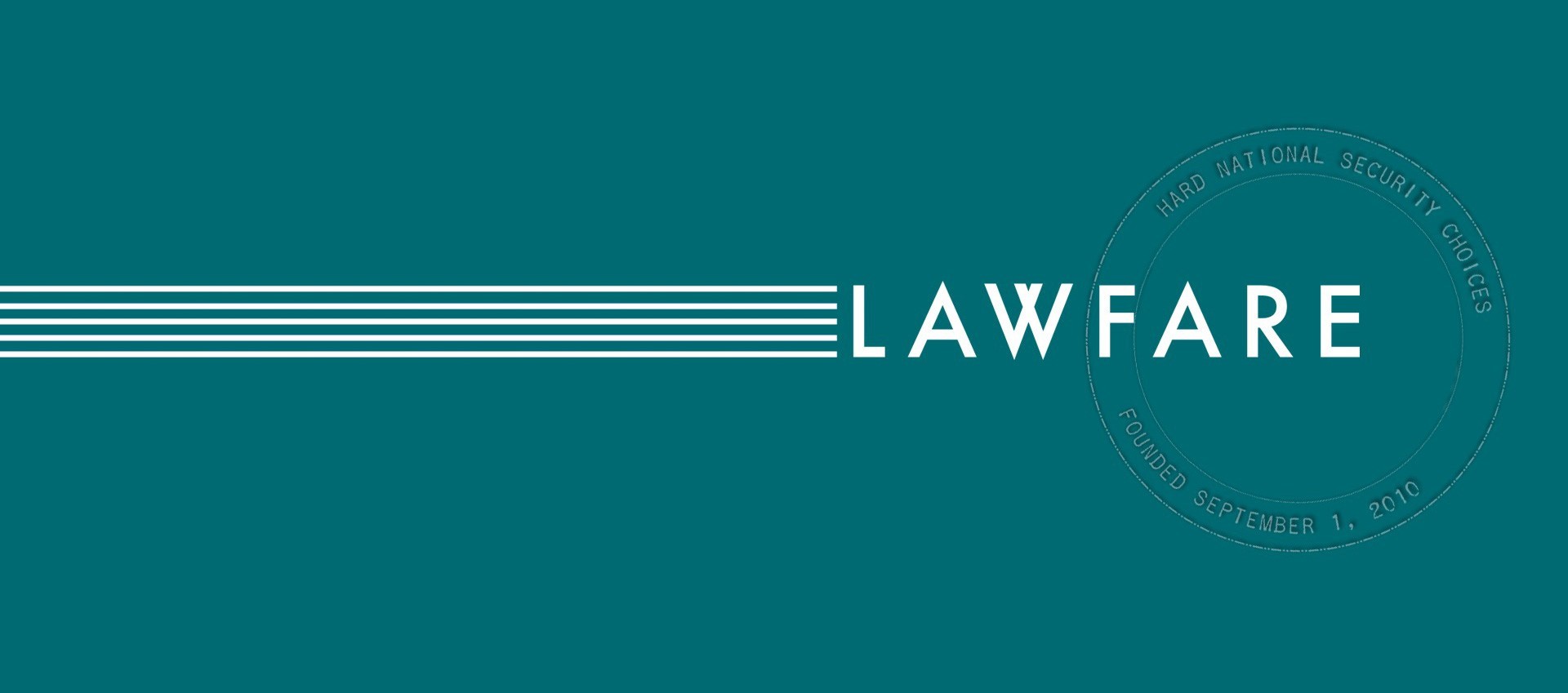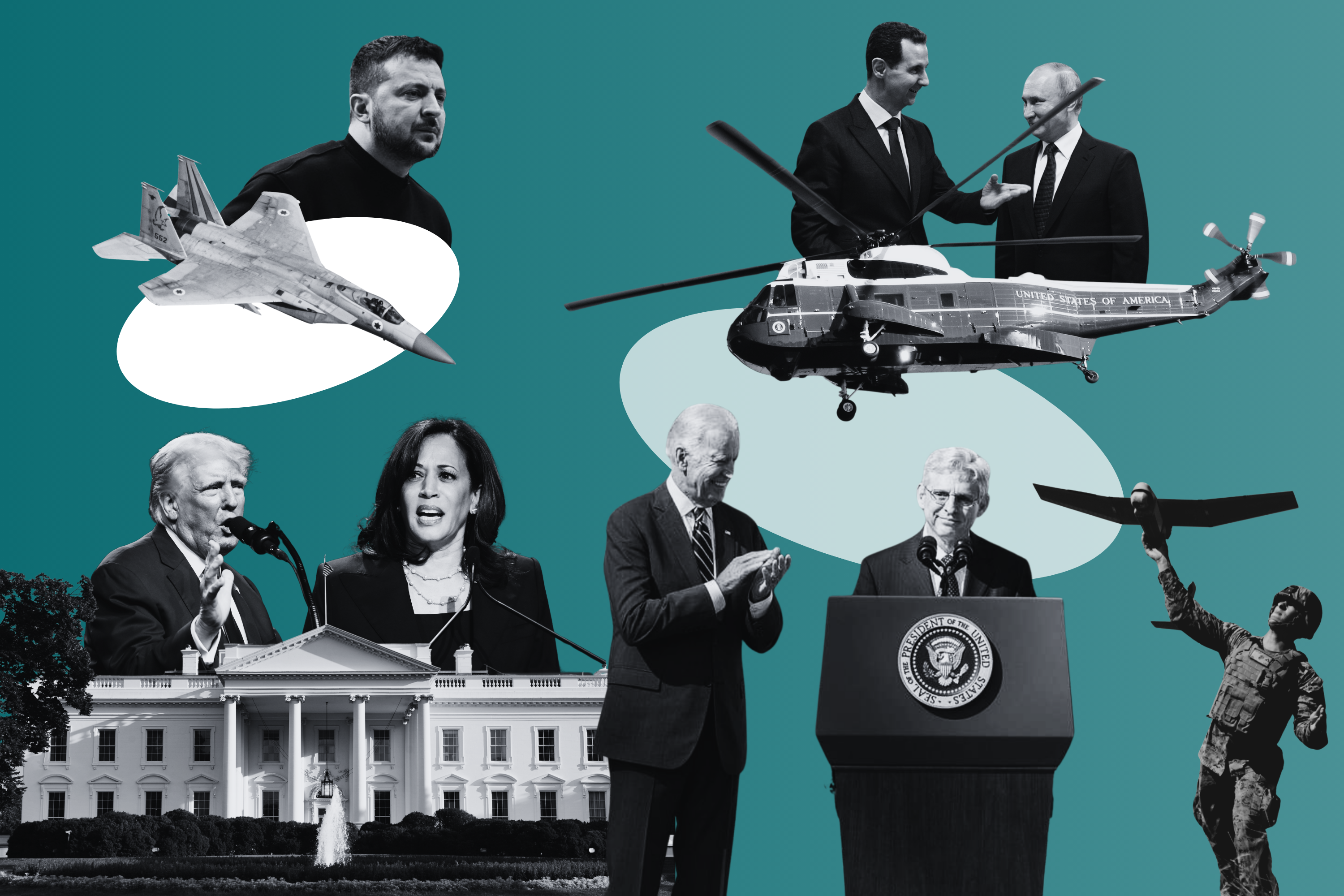Joel Brenner: "Mr. Wemmick's Condition; Or, Privacy as a Disposition, Complete with Skeptical Observations Regarding Various Regulatory Enthusiasms" (Lawfare Research Paper Series)
The War on Law Reviews continues on many fronts: land, sea, air, and particularly in the cyber domain, where today I am pleased to offer the next paper in the Lawfare Research Paper Series: Joel Brenner’s “Mr.
Published by The Lawfare Institute
in Cooperation With

The War on Law Reviews continues on many fronts: land, sea, air, and particularly in the cyber domain, where today I am pleased to offer the next paper in the Lawfare Research Paper Series: Joel Brenner’s “Mr. Wemmick's Condition; Or, Privacy as a Disposition, Complete with Skeptical Observations Regarding Various Regulatory Enthusiasms.” Brenner is already well known to Lawfare readers, so I won't spend a lot of space introducing him. In addition to serving as the inspector general of NSA and as the national counterintelligence executive, he is the author of America the Vulnerable: Inside the New Threat Matrix of Digital Espionage, Crime, and Warfare
“The office is one thing, and private life is another,” Mr. Wemmick instructs young Pip in Charles Dickens’ Great Expectations. Law clerk and factotum to the chancery lawyer Jaggers, Wemmick is a professional cipher, rendering unto Jaggers the services due an employer and keeping to himself his soul and private doings. He’s the personification of privacy, showing us the regimentation of working life, its control by others, and its sharp separation from the private realm. On this occasion, however, Wemmick has invited his young colleague home for a meal to his tiny house. His “Castle,” as he calls it, is surrounded by a moat which, though a mere two feet deep, marks an unambiguous perimeter in physical and spiritual space and is never breached except when Wemmick lowers a drawbridge to depart for work in the morning and again when he returns in the evening. From his roof every night at nine o’clock sharp, he fires a small cannon in an unvarying ritual, to the unbounded pleasure of his aged and mostly deaf father, whom he supports. “When I go into the office, I leave the Castle behind me,” Wemmick instructs Pip on the long walk to his sanctum sanctorum, “and when I come into the Castle, I leave the office behind me. If it’s not in any way disagreeable to you, you’ll oblige me by doing the same. I don’t wish it professionally spoken about.” Where did this rigid separation of working life and family life come from, and where did it go? Aristocratic society was always characterized by pride, honor, and reserve, but Mr. Wemmick was no aristocrat, and his outlook was not a feature of aristocratic society, because aristocrats didn’t work. Nor was it characteristic of the working class, if only because the crowded conditions of working class life, in which much living took place in common or on the street, would not permit it. Mr. Wemmick’s reserve was decidedly middle-class, and it represented the high-water mark of private, and especially familial, resistance to the intrusive demands of institutionalized life, commercial and otherwise. The public and the private realms of our lives create and define one another, and our language reflects that relationship. Georges Duby, co-editor of the landmark study of European private life since Roman times, described privacy as a “zone of immunity” and of secrets that “belong only to ourselves, which concern nobody else, and which may not be divulged or shown because they are so at odds with those appearances that honor demands be kept up in public.” David Flaherty, the historian of privacy in colonial New England, put it this way: “The last resource of the individual is that no one can force him to bare his personality and expose his naked self to the shame of total understanding.” Deeply as we feel this, locating the boundaries of privacy and specifying the legal and social rights and obligations they imply remain elusive in both law and philosophy. We use the word to mean many things, never more so than now. Privacy refers to solitude, but also to intimacy; to personal secrets, but also to whatever is owned by individuals as opposed to the state, including premises open to the public; to protected space, or simply to whatever is not public. Applied to persons, it implies reserve and therefore boundaries and distinctions. More recently privacy has been identified with anonymity, while at the same time an increasing number of people, especially advocates of strict data regulation, equate privacy with an asserted right to control information after we choose to release it, often widely. Indeed, the latter meaning is what “privacy law” has come to be chiefly about. This is a tectonic shift. It cuts the cord between privacy and familial life as personified by Mr. Wemmick and between privacy and secretiveness, let alone modesty, in both personal and business life. In its more radical formulation proposed by the European Commission, “privacy” regulation would also uncouple behavior from reputation, as if one should be able to conduct one’s affairs publicly (and badly) without consequence. Mr. Wemmick would have been bewildered by these policy prescriptions. Indeed he would have been bewildered by the notion that privacy was a fit subject for law and policy at all. We will come to law and policy in due course, but first, let’s turn the looking glass back on ourselves, over a long time, and watch this fundamental, elusive, and unstable concept evolve.





